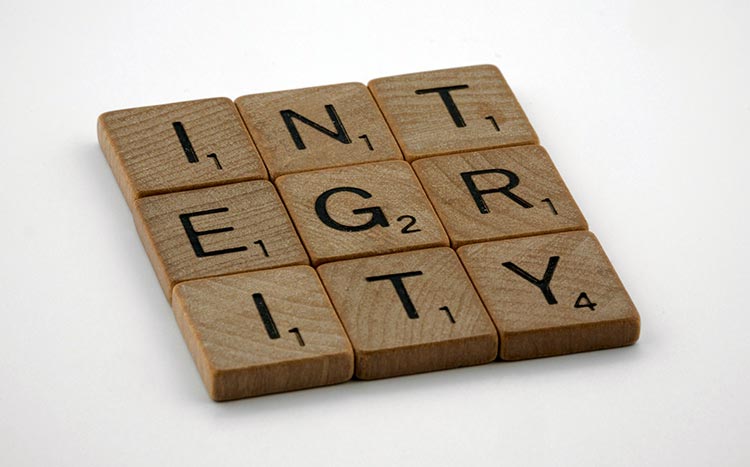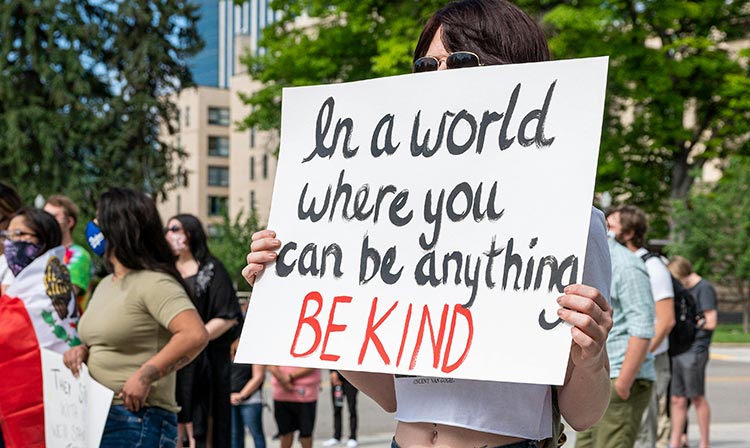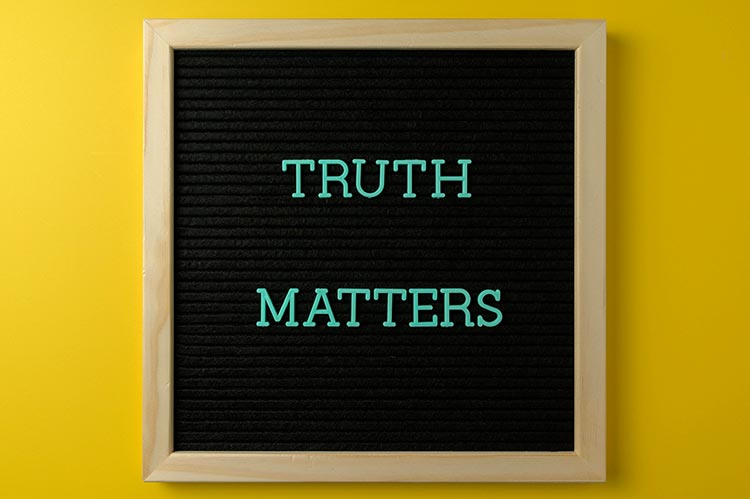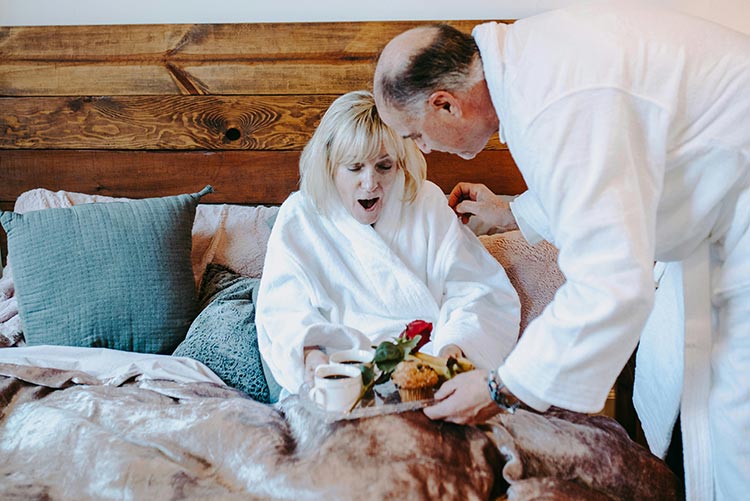Real Kindness vs. Niceness
LifeSkills Academy Blog
Check back often to find interesting information and updates.
Real Kindness vs. Niceness
Why Integrity Matters in Our Relationships

Many of us were taught to be nice long before we were taught to be kind.
Niceness often promised safety: keep the peace, avoid discomfort, smooth things over. For a while, it works. But over time, niceness can quietly erode honesty, clarity, and even connection.
Kindness, by contrast, is rooted in something sturdier.
It doesn’t rush to soothe.
It doesn’t avoid truth.
It doesn’t require self-erasure.
Kindness has integrity.
Niceness Seeks Harmony—Kindness Seeks Wholeness
Niceness often asks:
- How do I keep this comfortable?
- How do I avoid conflict?
- How do I stay “liked”?
Kindness asks something different:
- What supports long-term relational health?
- What is true here?
- What allows everyone to remain whole?
Niceness is often motivated by fear—of conflict, rejection, or discomfort.
Kindness is motivated by care—care strong enough to hold and carry truth.
Why This Distinction Matters

When niceness leads, people often feel:
- unheard
- confused
- subtly dismissed
When kindness leads—even when it’s firm—people experience:
- clarity
- respect
- emotional safety over time
Kindness doesn’t guarantee agreement, but it does preserve dignity.
Kindness Requires Strength
Real kindness asks us to:
- speak honestly without sharpness
- hold boundaries without withdrawal
- stay present without over-functioning
This kind of kindness doesn’t always feel gentle in the moment—but it proves gentle in its outcomes.
It creates relationships that can breathe and trust.
A Gentle Practice for This Week

Consider one place where you default to niceness.
Ask yourself:
- What am I avoiding?
- What truth is being softened past recognition?
- What would integrity-driven kindness look like here?
Choose one small moment this week to:
- name something honestly
- hold a boundary calmly
- remain kind without retreating
Strength and kindness are not opposites.
A February Reflection
Over the past month, we’ve explored:
- presence that creates safety
- language that helps love land
- discernment that protects clarity
- kindness rooted in integrity
Relational maturity is not about perfection.
It’s about becoming free enough to love without fear.
Click here for the Relational Intelligence Toolkit
Module Four: Kindness vs. Niceness
A Companion Resource (Optional)
This week’s practice tools complete the Relational Intelligence Toolkit—a February series designed to help you practice presence, expression, discernment, and integrity in everyday relationships.
Each module stands on its own and also works as part of the complete toolkit - coming soon!

Relational Intelligence Toolkit – February Edition
Presence • Expression • Discernment • Integrity
This toolkit brings together four practical modules designed to help you grow relational wisdom one step at a time.
Rather than offering formulas or quick fixes, these resources focus on developing awareness, clarity, and steadiness in everyday relationships—at home, at work, and within yourself.
Inside the toolkit:
- Module One: Warming the Room – cultivating presence that creates emotional safety
- Module Two: The Language of Love – expressing care in ways others can receive
- Module Three: Tough Love – leading with discernment, boundaries, and responsibility
- Module Four: Kindness vs. Niceness – choosing integrity-driven kindness over avoidance
Each module includes reflective guidance, gentle practices, and a printable reflection card. Modules can be used individually or together as a cohesive framework for relational growth.
This toolkit is for those who want to:
- remain kind without self-erasure
- lead with clarity rather than control
- stay present without over-functioning
- grow in love without fear
Use it at your own pace. Return to it as needed. Let it support you as you practice relational intelligence in real life.
At LifeSkills Academy, we equip individuals with essential life skills. Our dedicated team—seasoned business professionals all boast proven success in the world of commerce.
We invite you to sign up for our newsletters and class notices to stay informed about classes, valuable life skills content, and updates. Join us on the journey of continuous learning and personal growth. Let's build a foundation for success in life and our world together.
When Love Requires Courage
Tough Love as an Act of Leadership

Love is often associated with warmth, affirmation, and generosity.
But there are moments when love asks for something more demanding.
Not more intensity.
Not more control.
But more clarity.
This is where many people hesitate—not because they don’t care, but because they do.
Tough Love Is Not What We’ve Been Taught to Fear

The phrase tough love often carries baggage. It sounds harsh, corrective, or emotionally distancing. But at its core, tough love is not about punishment or withdrawal.
It’s about leadership.
Leadership that is willing to:
- tell the truth without urgency
- hold boundaries without anger
- remain connected without rescuing
Tough love is what allows care to remain honest.
Leadership Begins With Responsibility
Relational intelligence reminds us that love does not mean absorbing what isn’t ours to carry.
In leadership—whether of a family, a team, a friendship, or oneself—there comes a moment when continuing to soothe, excuse, or compensate prevents growth.
This is where discernment matters.
Not every discomfort needs to be removed.
Not every consequence needs to be softened.
Not every problem needs to be solved by us.
Sometimes, love leads by not intervening.
The Difference Between Compassion and Enabling
This distinction is subtle—and crucial.
- Compassion acknowledges struggle while respecting responsibility
- Enabling removes the opportunity for growth
Tough love does not withdraw care.
It withdraws misplaced responsibility.
And that takes courage.
How This Shows Up in Everyday Relationships

Leadership is not limited to titles or roles. It shows up wherever people depend on one another.
- In families, when boundaries protect long-term health
- In friendships, when honesty replaces avoidance
- In work, when clarity is offered instead of mixed signals
- In self-leadership, when we stop negotiating with what we know is true
Tough love says:
I care enough to be clear—even when it’s uncomfortable.
A Gentle Practice for This Week
Consider one area of your life where clarity has been delayed.
Ask yourself:
- What truth have I been hesitant to name?
- What responsibility might I be carrying that isn’t mine?
- What would leadership look like here—without force or withdrawal?
Clarity does not need to be loud to be effective.
Looking Ahead
Learning to love with clarity prepares us for one final distinction:
The difference between kindness and niceness.
Next week, we’ll explore how to remain kind—without erasing ourselves or avoiding truth—and why integrity is essential to relational maturity.
A Companion Resource (Optional)
This week’s practice tools are part of the Relational Intelligence Toolkit, a February series designed to help you practice presence, expression, discernment, and integrity—one step at a time.
Click here for the Relational Intelligence Toolkit
Module Three: Tough Love
At LifeSkills Academy, we equip individuals with essential life skills. Our dedicated team of educators—seasoned business professionals, all boast proven success in the world of commerce.
We invite you to sign up for our newsletters and class notices to stay informed about classes, valuable life skills content, and updates. Join us on the journey of continuous learning and personal growth. Let's build a foundation for success in life and our world together.
The Language of Love
How Care Is Communicated—And Missed
Love is often deeply felt—and quietly misunderstood.
Many relational tensions don’t begin with a lack of care, but with a disconnect between how love is expressed and how it is received. We offer what feels meaningful to us, assuming it will land the same way for someone else.
Sometimes it does.
Often, it doesn’t.
This is where relational intelligence invites us to slow down and learn a new skill: paying attention to the language of love.
Love Is Communicated—Not Assumed
Care doesn’t exist only in intention. It exists in expression.
Relationally intelligent people understand that love is not one-size-fits-all. It tends to be communicated through recognizable patterns—ways people give and receive care that feel natural, familiar, and safe to them.
Learning to notice these patterns doesn’t require labeling or diagnosing. It requires curiosity.
Common Love-Expression Patterns (And Their Signals)

While people are wonderfully complex, many express love in a few consistent ways. Here are some common patterns—and what they may look like in everyday life:
- Words of affirmation
Signals: verbal encouragement, thoughtful messages, naming appreciation
They feel loved when: words are spoken, not assumed - Quality time
Signals: undivided attention, lingering conversations, shared presence
They feel loved when: time is protected and distractions are set aside - Acts of service
Signals: helping, anticipating needs, practical support
They feel loved when: effort lightens their load - Thoughtful gestures or gifts
Signals: remembering details, symbolic items, intentional surprises
They feel loved when: care is made tangible - Appropriate physical affection
Signals: closeness, reassuring touch, physical presence
They feel loved when: connection is embodied (within healthy boundaries)
None of these are better than another. They are simply different dialects of care.
Why Love-Misses Happen
Misunderstandings arise when:
- We give love in our primary language
- Others receive love in their primary language
- Neither realizes a translation is needed
Relational intelligence doesn’t ask us to abandon our natural way of loving—but it does invite us to expand our vocabulary.
Listening for the Language

One of the simplest ways to discern someone’s love language is to notice:
- What they request most often
- What they express gratitude for
- What seems to hurt when it’s missing
These clues are not demands—they’re information.
A Gentle Practice for This Week
Choose one relationship and take a few quiet minutes to reflect:
- How does this person most naturally express care?
- How do they seem to receive it?
- What small adjustment might help love land more clearly?
Then add one simple step:
- Identify one aspect of this person or your relationship that you genuinely appreciate—something steady, ordinary, or often unspoken.
- Find a natural, everyday way to name it this week. A sentence. A note. A brief comment in passing.
This isn’t about grand gestures.
It’s about letting care be heard.
Even small expressions of appreciation can soften a relationship and open space for deeper understanding.
Looking Ahead
Understanding the language of love helps us express care more clearly—but it also raises an important next question:
What happens when love requires honesty, boundaries, or discomfort?
That’s where we’re headed next—into the wisdom of tough love, and how to love well without losing clarity or integrity.
A Companion Resource (Optional)
This week’s practice tools are part of a growing February series designed to help you move from insight to lived relational skill.
Each module stands on its own and can also be used as part of a complete toolkit – Relational Intelligence Toolkit - released later this month.
Click here for the Relational Intelligence Toolkit, Module Two: Language of Love
This week’s practice tools are part of a growing Relational Intelligence Toolkit we’ll complete at the end of February. You’re welcome to join at any point—or simply reflect along with us.
About the Relational Intelligence Toolkit
This resource is a skill-building series designed to practice relational wisdom one step at a time.
Each module pairs with a weekly LifeSkills Academy post and offers easy, reflective tools to help move from insight to practice—at your own pace, in everyday conversations and relationships.
You’re welcome to begin with any module, or to use this as part of the complete Relational Intelligence Toolkit released at the end of February. Each piece stands on its own while contributing to a larger framework for growing relational awareness, communication, and integrity.
If you're interested in staying informed about LifeSkills Academy’s classes, valuable life skills content, and updates, we encourage you to sign up for our newsletters and class notices. Join us on the journey of continuous learning and personal growth. Together, let's build a foundation for success in life and our world.
Most Recent Posts ...
Posted on: 2/23/2026
Posted on: 2/16/2026
Posted on: 2/9/2026
Posted on: 2/2/2026
Search All Blog Posts
Blog Post Archive Categories
- AI as a Life Skill: Using Smart Tools Wisely, Well, and With Intention
- 2026 Will Reward the Prepared: Foundational Skills to Strengthen as You Step Into 2026
- The December Pause That Restores Your Peace and Strength
- Real Kindness vs. Niceness
- When Love Requires Courage
- The Language of Love
- Halloween Etiquette: Teaching Respect and Community Spirit
- Words of Wisdom: Traveling 2024
- Thankful Thursdays
- My interview with Dennis Pearce

